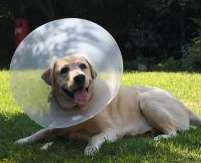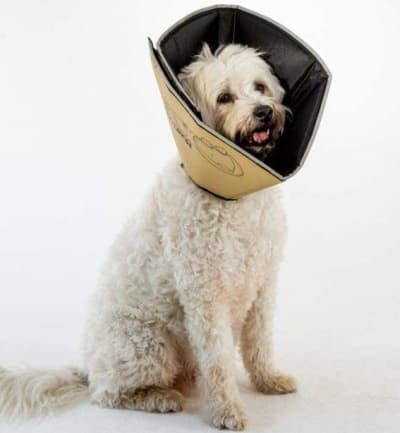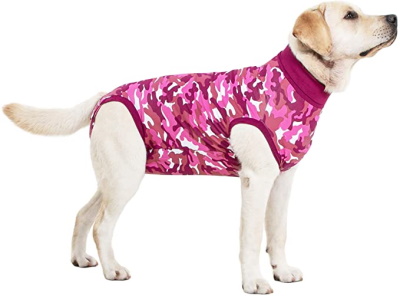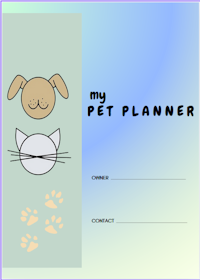The Modern Dog Cone
Comfy Alternatives To The Vet E-Collar!
Shh...don't say "dog cone" around your dog or they will probably run and hide.

At one time or another your dog has probably had to wear a recovery collar or what is also known as an Elizabethan collar, or simply a cone.
While a few dogs adjust to the collar without too much fuss, the majority get very glum and don't enjoy the experience at all. This is especially true if the collar was provided by your vet and was one of the stiffer, sharper-edged older varieties.
Happily, for your dog, things have gotten a lot better in the dog cone department.
When Do You Need A Dog Cone?
Recovery collars are very helpful and absolutely necessary in many situations. Dogs are often tormented by hot spots, or itchy skin allergies and can't stop licking or chewing at their skin.
Itchy skin problems may start when a pet becomes sensitive to something in the environment, a grooming product, fleas, or a food allergy.
While trying to figure out the cause, a cone is helpful in preventing a pet's chewing from becoming habitual and potentially causing more serious skin problems.
At other times, a pet may get in a fight and have an injury that must be protected from excessive licking while it heals. This is also true when a dog is recovering from a surgical procedure where the stitches should not be disturbed for a period of days.

Protective Inflatable Soft Pet Recovery Collar
Does Not Block Vision
Dog cones can be so depressing to some animals that they go off their food - heck many of the collars make it hard to get to the food, much less enjoy it!
Add to that the discomfort of a pet trying to take a nap while wearing one, or navigating around the house visually impaired trying to avoid bumping into things. It's easy to understand that a pet could become quite miserable.
Alternatives to the Pet Recovery Collar
Many of the new e-collar styles hardly interfere at all with a dog's usual activities and many look downright fashionable. And even the cone-shaped ones have been designed with less weight and greater comfort.
When it comes to the selection of pet cones, owners should take into consideration the size and flexibility of their pet, plus the location of the target area needing protection.
For example, if the target area is on the paw of a front leg, some of the collars might not work depending on the size of the dog, while another type will do the trick.
So just consider how much of a barrier is needed to prevent your dog from being able to reach and lick the target and then choose accordingly.
Also, if your dog is very visually oriented, he might prefer the transparent collars that still allow him to have a peripheral view of his world.
Collar History
The e-collar got its name from a distinctive style of collar worn by people of nobility
during Elizabethan times. These collars were stiffly designed and extended quite high and
close to the head and often had several layers or ruffles, This made moving the head
side-to-side or up and down quite a challenge.
Fast forward to a point where some pet-oriented individual, thinking outside of the box,
connected this style with a practical use, and the e-collar was born.
Thankfully, we have discovered many other options that dog owners can consider when their
dog has a reason to wear a dog cone. Now, a pet doesn't have to suffer one of those
old-style torture chambers and he'll be able to eat, sleep and walk about comfortably!
Recovery Collar Variation
While the collar shown below is not your typical cone-shaped type, it may be just what you need depending on the area where the wound or other skin problem is located.

BiteNot Wound Protective Collar
With all the new protection wear for dogs featured on this page, your pet 'happily' will no more have to suffer the
embarrassment of wearing a "cone of shame" or lampshade, as these devices are
often called.
So, when your pet does have to wear a dog cone, especially for a lengthy period of time, try to
make it one that still let's him hold his head up without shame! The great thing about the
alternative collars is that they are so much more comfortable than a lampshade!
While it's true that we wish our pets never had a reason to wear a cone, now we can at least make
the experience much easier for them when it's necessary for their health protection.

Adjustable Recovery Collar, Transparent Plastic with Padding
Protects Against Biting or Licking Wounds
- Home ›
- Dog Collars ›
- Dog Cones



